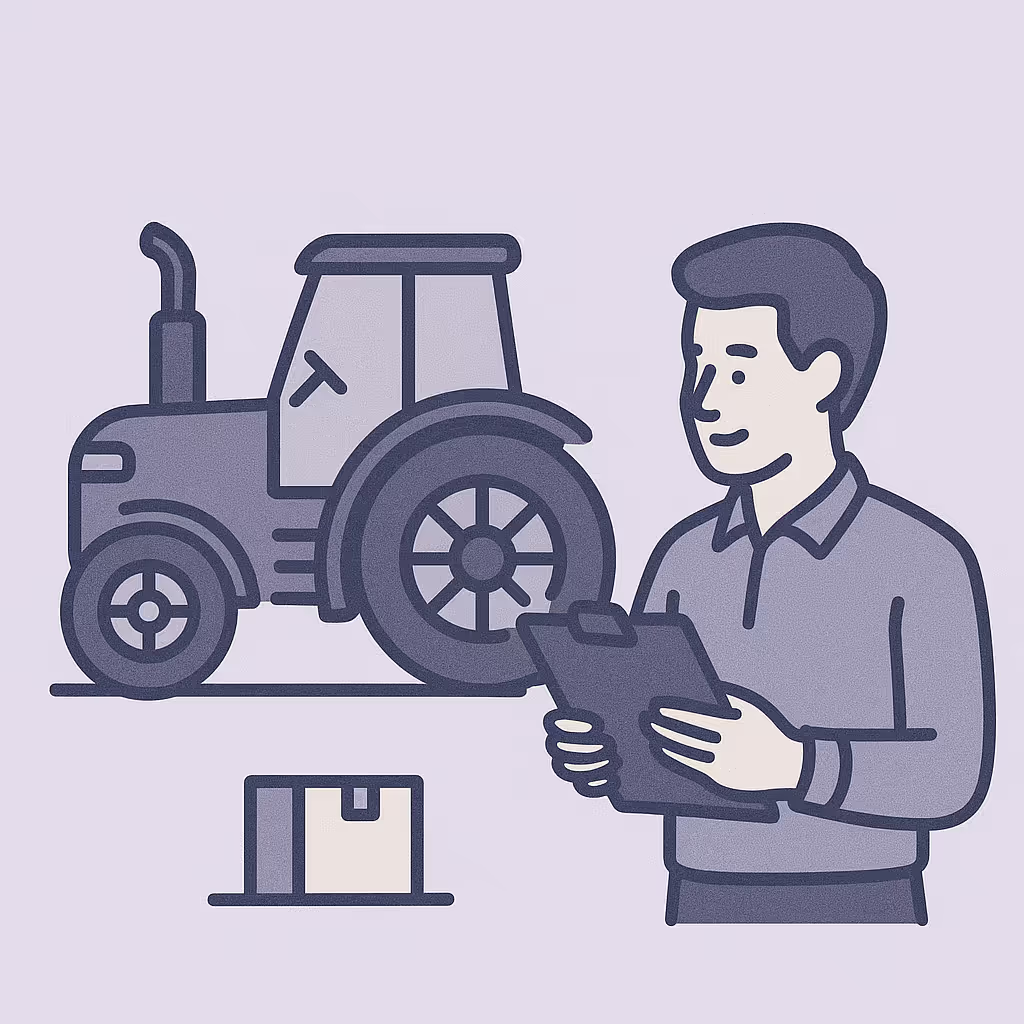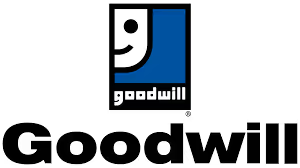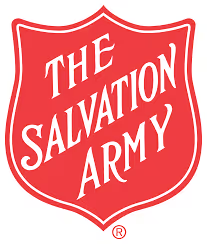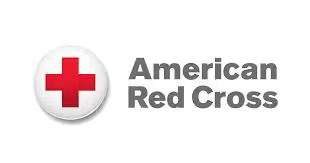






5-Star Valuation Services, Loved by Hundreds
Frequently Asked
Questions
No Frequently Asked Questions Found.
These assignments typically follow professional standards such as USPAP and include analysis of market data, comparable sales, and asset-specific factors like condition, provenance, or economic outlook. The report helps demonstrate that the claimed value is reasonable, well supported, and prepared by a qualified appraiser.
An appliance appraisal is a comprehensive professional evaluation that precisely determines the fair market value of household appliances. Conducted by specialized experts in personal property valuation, this process involves a meticulous assessment of various types of equipment including refrigerators, ovens, washers, dryers, and other kitchen or laundry appliances.
The appraisal process is a nuanced examination that considers multiple critical factors influencing an appliance's overall value. Trained appraisers conduct a thorough inspection, analyzing the item's condition, brand reputation, technological features, and current market dynamics.
Key elements in the valuation process include a detailed review of the appliance's physical state, ranging from brand new to gently used or requiring repair. Each assessment takes into account the specific model's attributes, technological capabilities, and market desirability. The appliance's age plays a significant role, with newer models potentially commanding higher values due to advanced features and updated technology.
Market demand represents another crucial component of the appraisal. Appraisers carefully evaluate current consumer trends, technological advancements, and seasonal variations that might impact an appliance's perceived value. The original purchase price serves as a baseline, though depreciation substantially influences the final valuation.
Practical applications for appliance appraisals are diverse and significant. Homeowners may seek these assessments when selling equipment, relocating, or establishing insurance valuations. They are equally valuable during estate settlements, divorce proceedings, or when making complex financial decisions involving personal property.
Ultimately, an appliance appraisal provides a formal, documented assessment that offers clarity and precision in understanding an item's true market worth. By delivering an objective and comprehensive evaluation, these professional assessments empower individuals to make informed decisions about their household equipment.
Online appliance appraisals have become increasingly sophisticated, leveraging advanced digital technologies to provide comprehensive and accurate valuations. Modern appraisal methods allow property owners and professionals to assess appliance value through comprehensive digital platforms without requiring in-person visits.
The process typically involves submitting detailed documentation, including high-resolution images and specific appliance information such as make, model, age, and current condition. Professional appraisers utilize specialized digital assessment tools to analyze these submissions, ensuring a meticulous evaluation that meets industry standards.
Advanced video conferencing technologies further enhance the online appraisal experience. Platforms like Zoom and Google Meet enable real-time consultations, allowing appraisers to conduct interactive assessments. During these virtual sessions, professionals can examine appliances closely, ask targeted questions, and gather nuanced insights about the item's condition and value.
Critical to the online appraisal process is adherence to Uniform Standards of Professional Appraisal Practice (USPAP). These standards ensure that digital evaluations maintain the same rigorous accuracy and reliability as traditional in-person assessments, providing credibility across various professional contexts.
Digital appraisals offer significant advantages, including convenience, speed, and accessibility. Clients can receive professional valuations without scheduling physical appointments, making the process more efficient and adaptable to diverse needs. Whether assessing a refrigerator, washing machine, or specialized equipment, online appraisals represent a modern, streamlined approach to determining appliance value.
Appliance appraisers represent a specialized professional group with distinct areas of expertise, each addressing unique valuation needs. These professionals bring comprehensive knowledge and targeted skills to different aspects of appliance assessment.
Certified personal property appraisers provide robust, comprehensive evaluations of household appliances. They possess formal training and certification, utilizing rigorous methodologies to assess condition, quality, and market value while maintaining strict ethical standards and professional guidelines.
Resale value appraisers focus specifically on determining potential market prices for used appliances. Their expertise involves analyzing current market trends, evaluating depreciation rates, and comparing similar sales to generate accurate valuation reports. These professionals are particularly valuable for individuals considering selling or liquidating appliance inventories.
Insurance appraisers specialize in establishing precise replacement and repair cost assessments for insurance purposes. They collaborate closely with insurance providers, generating detailed documentation that supports claim processing and coverage determinations.
Estate appraisers play a critical role during inheritance and estate settlement processes. Their comprehensive evaluations help facilitate equitable asset distribution, supporting legal and financial decision-making by providing accurate appliance valuations within broader estate contexts.
Antique and specialty appraisers represent a unique subset, focusing on vintage or historically significant appliances. These professionals evaluate items based on historical significance, rarity, condition, and collectible potential, often requiring deep specialized knowledge beyond standard market assessment techniques.
Home inspector-qualified appraisers offer supplementary insights during property transactions. While their primary focus encompasses broader property evaluations, they can provide nuanced assessments of appliance functionality and potential longevity.
Selecting the appropriate appraiser depends entirely on specific contextual requirements, ensuring precise, professional, and contextually relevant valuation services.
Navigating the world of appliance valuation can be complex, but understanding its importance can help you make informed financial decisions. An appliance appraisal offers critical insights across multiple scenarios, from insurance protection to legal proceedings.
Insurance coverage stands as a primary motivation for obtaining an appraisal. When unexpected events occur, having precise documentation of your appliances' value ensures you receive fair compensation. This detailed assessment becomes crucial during claims processes, protecting your financial investment against potential losses from theft, damage, or destruction.
Legal and financial transitions also benefit significantly from professional appliance valuation. During estate planning or divorce settlements, an objective assessment helps determine equitable asset distribution. High-end or specialized appliances often have nuanced values that aren't immediately apparent, making professional evaluation essential for accurate property division.
Tax considerations present another compelling reason for appraisal. Charitable donations of appliances valued above specific thresholds require professional documentation to substantiate potential tax deductions. This process ensures compliance with regulatory requirements while maximizing potential financial benefits.
Real estate transactions represent another context where appliance appraisals prove valuable. Potential buyers appreciate transparent, professional assessments of existing appliances, which can enhance property marketability and instill confidence in the transaction.
Ultimately, an appliance appraisal transcends simple monetary valuation. It provides a comprehensive understanding of your assets, supports critical financial decisions, and offers peace of mind in various personal and professional scenarios.
What Makes Appliance Donations Financially Smart?
Donating appliances offers a strategic approach to managing unused household items while providing multiple financial and social benefits. Understanding these advantages can help you make informed decisions about your unneeded appliances.
Financial Advantages of Appliance Donation
- Tax Deduction Opportunities
By donating to qualified charitable organizations, you can claim the fair market value of appliances on your tax return. This strategy can potentially lower your taxable income and generate meaningful financial savings, particularly with higher-value items.
- Cost Avoidance
Donating eliminates expensive disposal fees from waste management services. Large appliances like refrigerators and washing machines can incur significant removal costs, making donation a cost-effective alternative.
Community and Environmental Impact
- Supporting Local Organizations
Appliance donations provide critical resources for non-profit organizations and community support groups. These contributions help low-income families and vulnerable populations access essential household equipment.
- Sustainability Benefits
Donating appliances extends product lifecycles, reduces landfill waste, and promotes responsible recycling practices. This approach contributes to broader environmental conservation efforts.
Practical Home Management
- Space Optimization
Donating unused but functional appliances helps declutter living spaces, creating a more organized and efficient home environment. This process allows you to streamline your belongings while benefiting others.
Appliance donation represents a thoughtful approach to resource management, offering financial, social, and environmental advantages beyond simple disposal.
Key Factors Determining Your Appliance's Charitable Value
Understanding Your Appliance's Charitable Valuation
Determining the charitable value of an appliance involves carefully evaluating multiple critical factors that directly impact its potential worth and donation potential.
1. Appliance Condition: The Primary Valuation Driver
- Fully operational appliances command higher values
- Assess both aesthetic and functional conditions
- Evaluate signs of wear, damage, or necessary repairs
- Well-maintained items are more attractive to potential recipients
2. Age and Brand Significance
- Newer models typically retain more value
- Advanced technological features increase potential worth
- Renowned brands may carry a premium valuation
- Consider the specific model's reputation and reliability
3. Current Market Dynamics
- Market demand fluctuates based on seasonal and economic conditions
- Some appliances experience value variations throughout the year
- Local market trends significantly impact potential valuation
- Consider consulting local resale or donation experts for precise insights
4. Depreciation and Original Investment
- Original purchase price provides an initial valuation benchmark
- Account for significant depreciation over time
- Typical appliance value decreases approximately 10-15% annually
- Adjust expectations based on realistic market value
5. Comparative Market Analysis
- Review recent sales of similar appliances
- Utilize online marketplaces and local sales platforms
- Compare condition, age, and specific model characteristics
- Gather multiple data points for accurate valuation
By carefully considering these interconnected factors, donors can develop a comprehensive understanding of their appliance's charitable value, ensuring an accurate and fair donation assessment.
How Do Professional Appraisals Impact Your Tax Deduction?
Understanding the Impact of Professional Appraisals on Charitable Donation Tax Deductions
When donating appliances or household items, a professional appraisal plays a critical role in maximizing your potential tax benefits while ensuring compliance with IRS guidelines.
Why Professional Appraisals Matter
The IRS allows taxpayers to claim deductions for charitable contributions based on the fair market value of donated items. Accurately determining this value requires a professional and objective assessment, particularly for high-value appliances.
Key Considerations for Tax Deductions
- Fair Market Value Determination: Professional appraisers meticulously evaluate an appliance's value by examining:
- Overall condition
- Age of the appliance
- Brand reputation
- Current market demand
- IRS Compliance Protection: A qualified appraiser's documentation provides:
- Robust support for claimed deduction values
- Protection against potential tax audit challenges
- Verified valuation methodology
- Maximizing Potential Deductions: Many donors unknowingly undervalue their donated items. Professional appraisals can:
- Reveal higher fair market values
- Increase potential tax deduction amounts
- Provide a comprehensive valuation report
- Charitable Giving Credibility: Professional appraisals demonstrate:
- Commitment to transparent donation practices
- Responsible approach to charitable giving
- Respect for the receiving organization
Final Considerations
Investing in a professional appraisal for donated appliances offers multiple benefits. Beyond potential tax advantages, it provides peace of mind and ensures you're following proper donation and tax reporting guidelines.
Navigating the Appliance Donation Appraisal Process
Understanding the Appliance Donation Appraisal Process
Donating appliances offers significant benefits to both donors and charitable organizations, but successfully navigating the appraisal process requires careful attention to detail.
Key Components of Appliance Donation Valuation
- Fair Market Value Fundamentals
Fair market value (FMV) represents the price a willing buyer would pay for an appliance in an open market scenario. Critical factors in determining FMV include:
- Current appliance condition
- Age of the appliance
- Original brand and model
- Original retail price
- Comparable market pricing
Essential Steps in the Appraisal Process
- Professional Appraisal Selection
Choose an appraiser with specialized credentials in personal property valuation, ensuring:
- Professional certifications
- Specialized experience in appliance assessment
- Ability to provide comprehensive documentation
- Documentation Preparation
Compile comprehensive documentation to support the appraisal, including:
- Original purchase receipts
- Warranty information
- Maintenance and repair records
- Appliance specifications
- Appraisal Report Insights
A professional appraisal report typically includes:
- Detailed fair market value assessment
- Comprehensive item description
- Professional evaluation methodology
- Appraiser's credentials and signature
Tax Considerations
When donating appliances, donors should be aware of important tax implications:
- Potential tax deductions based on fair market value
- IRS guidelines for charitable donations
- Required documentation for tax reporting
- Potential limitations on deduction amounts
By understanding these critical aspects of the appliance donation appraisal process, donors can maximize their charitable impact while ensuring accurate valuation and potential tax benefits.
Essential Documentation for Charitable Appliance Contributions
When donating appliances for charitable purposes, understanding the essential documentation is crucial for ensuring a smooth transaction and maximizing potential tax benefits. Proper documentation verifies the value of your donation and ensures compliance with IRS regulations.
Key Documentation for Appliance Donations
1. Comprehensive Itemized Donation Inventory
Create a detailed list of donated appliances that includes:
- Brand and model of each appliance
- Precise condition assessment (new, gently used, or refurbished)
- Significant features or technical specifications
- Current estimated value of each item
2. Accurate Fair Market Value Determination
Establish a credible fair market value that reflects what a willing buyer would pay for the appliance. Consider these strategies:
- Consult multiple online valuation resources
- Use reputable appliance valuation guides
- Consider professional appraisal for high-value items
- Document your valuation methodology
3. Official Charitable Organization Receipt
Request a comprehensive donation receipt that includes:
- Exact date of donation
- Detailed description of donated appliances
- Estimated total value of donated items
- Charity's tax identification number
- Written acknowledgment of donation
4. IRS Compliance Documentation
Prepare additional documentation for tax purposes:
- File IRS Form 8283 for donations exceeding $500
- Include detailed appraisal for items valued over $5,000
- Maintain copies of all supporting documentation
- Photograph donated items for record-keeping
Thorough documentation enables donors to contribute meaningfully to charitable causes while ensuring transparent and compliant donation processes.
Choosing the Right Appraiser: A Step-by-Step Guide
Choosing the Right Appraiser for Charitable Donation Appraisals
Selecting the right appraiser for charitable donation purposes requires careful consideration and a strategic approach. Follow this comprehensive guide to ensure you find a qualified professional who can accurately assess your appliances.
Key Considerations for Appliance Appraisal
- Define Your Specific Needs
- Identify exact appliances requiring appraisal
- Document key details:
- Age of appliance
- Current condition
- Brand and model
- Unique features or modifications
- Understand that specialized expertise varies among appraisers
- Research Qualified Professionals
- Prioritize certified appraisers with specialized experience
- Verify credentials from recognized appraisal organizations
- Confirm adherence to professional ethics and industry standards
- Validate Appraiser Credibility
- Review online testimonials and client feedback
- Request and contact professional references
- Assess reputation within the appraisal industry
- Conduct Comprehensive Interviews
- Prepare targeted questions about their appraisal methodology
- Discuss experience with similar appliance types
- Clarify expected turnaround time for appraisal reports
- Evaluate communication skills and professional demeanor
- Understand Financial Expectations
- Discuss fee structures in advance
- Compare pricing models:
- Flat-rate fees
- Hourly billing
- Ensure pricing reflects appraisal complexity
- Evaluate Documentation Standards
- Request sample appraisal reports
- Verify comprehensive documentation includes:
- High-quality photographs
- Detailed appliance descriptions
- Precise valuation methodology
- Confirm report meets charitable donation requirements
By meticulously following these steps, you can confidently select an appraiser who will provide an accurate and professionally documented valuation of your appliances for charitable donation purposes.
Maximizing Your Charitable Impact: Strategic Appliance Donation
Donating appliances can be a meaningful way to support charitable organizations while also providing potential tax benefits for donors. To truly maximize the impact of your charitable contribution, it's essential to approach the donation process strategically.
Selecting the Right Appliances for Donation
- Focus on appliances in good working condition
- Prioritize items that meet safety standards
- Consider donating:
- Refrigerators
- Microwaves
- Stoves
- Washers
The Importance of Professional Appraisal
A professional appliance appraisal is crucial for several key reasons:
- Provides an accurate valuation of your donation
- Ensures proper documentation for tax purposes
- Helps determine the fair market value of the appliance
Choosing the Right Charitable Organization
Not all nonprofits handle appliance donations equally. Consider the following when selecting a charity:
- Research the organization's specific donation programs
- Understand the charity's mission and current needs
- Verify if they accept appliance donations
- Confirm their ability to effectively use or distribute donated appliances
Donation Logistics
Key Considerations
- Coordinate pickup or drop-off details
- Discuss transportation options for large appliances
- Obtain proper donation receipts
- Ensure timely and efficient donation process
By approaching appliance donations strategically, you can accomplish multiple goals: declutter your space, support a meaningful cause, and potentially benefit from tax deductions. The key is careful planning, thorough research, and a commitment to making a positive impact.
Common Pitfalls to Avoid in Appliance Donation Appraisals
Navigating the Challenges of Appliance Donation Appraisals
Donating appliances requires careful consideration to maximize value and ensure a smooth donation process. Understanding potential pitfalls can help donors make informed decisions and avoid costly mistakes.
Key Challenges in Appliance Donation Appraisals
- Inadequate Market Research
Many donors underestimate the importance of comprehensive market research. Appliance values fluctuate based on:
- Current market trends
- Specific model characteristics
- Overall market demand
- Condition Assessment Oversights
The appliance's condition dramatically impacts its donation value. Critical factors include:
- Operational status
- Required repairs
- Age and wear
- Potential functional limitations
- Emotional Value vs. Market Value
Donors often struggle to separate personal attachment from objective valuation. Professional appraisers provide an unbiased assessment that reflects true market worth.
- Documentation Challenges
Comprehensive documentation is crucial for:
- Tax reporting accuracy
- Establishing donation value
- Maintaining transparent records
- Appraiser Qualification Concerns
Selecting the right appraiser is critical. Look for professionals who:
- Understand specific appliance valuations
- Comply with IRS regulations
- Provide detailed, accurate assessments
Best Practices for Successful Donation
To navigate these challenges effectively, donors should:
- Conduct thorough market research
- Obtain professional condition assessments
- Maintain objective valuation standards
- Collect comprehensive documentation
- Work with qualified, certified appraisers
By approaching appliance donations with diligence and professional guidance, donors can ensure a transparent, beneficial process that maximizes both charitable impact and potential tax advantages.
Understanding IRS Guidelines for Appliance Charitable Contributions
When donating appliances to charitable organizations, understanding IRS guidelines is crucial for ensuring compliance and maximizing potential tax benefits. The IRS recognizes charitable donations as an important method of supporting community initiatives while providing donors with potential tax advantages.
IRS Eligibility Criteria for Charitable Donations
To qualify for a tax deduction, donors must meet specific requirements:
- The receiving organization must be a registered 501(c)(3) nonprofit
- Verify the charity's status through the IRS Tax Exempt Organization Search
- Contributions to non-qualified organizations are not tax-deductible
Fair Market Value Determination
The IRS allows taxpayers to deduct the fair market value (FMV) of donated appliances, which is defined as the price a willing buyer would pay a willing seller under normal market conditions.
Key Considerations for Valuation:
- Assess the appliance's current condition
- Consider the appliance's age and remaining useful life
- Research comparable resale values
- Document the appliance's specific characteristics
Documentation Requirements
Proper documentation is critical for claiming tax deductions:
- Obtain a written acknowledgment from the charity
- Include donation date and detailed appliance description
- For appliances valued over $500, secure a qualified appraisal
- Maintain thorough records to support claimed value
Additional Tax Considerations
Donors should be aware of important IRS guidelines:
- Understand contribution ceilings based on income
- Be prepared for potential limitations on deduction amounts
- Consider consulting a tax professional for complex donations
By carefully following these guidelines, donors can effectively support charitable causes while navigating the complexities of appliance donations and potential tax benefits.
View all Locations
APPRAISEITNOW APPRAISERS ARE BEST-IN-CLASS & CREDENTIALED BY LEADING APPRAISAL ORGANIZATIONS LIKE THE ISA, ASA, & MORE.






.svg)








